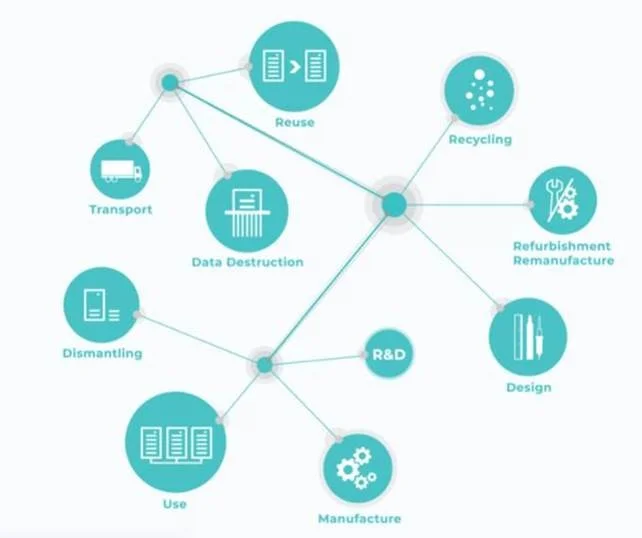Interact contributes to leading circular data centre research
Rich Kenny | June 3, 2021

Interact was born from a two-year research project between the University of East London and Techbuyer, which generated an IEEE paper that established the performance and energy draw of server and upgrade configurations. The tool uses these detailed findings and server configurations to generate its in-depth, vendor-neutral data centre IT hardware recommendations. So it’s perhaps fitting that one of our first data centre consultancy projects has been an international research project that makes use of our energy efficiency metrics and cost projections, in order to make a sound business case for using refurbished hardware and remanufactured machines. Here is an overview of the CEDaCI project, its work in making circular economy a reality in data centres, and how our team is helping.
What is CEDaCI?
Circular Economy in the Data Centre Industry (CEDaCI) is an Interreg funded European research project that spans the UK, France, Germany and the Netherlands. The research project is unique in bringing industry experts, academics, and organisations together to analyse the entire IT life cycle, from design right through to destruction. Its particular focus is servers, which have been chosen because they have the highest environmental impact of IT equipment inside the data centre. They represent 65% of overall energy usage and the embodied environmental cost could be as high as 50% according to initial findings of CEDaCI life cycle assessments. This includes factors such as water usage, toxicity, and carbon. However, a particular focus of the project is critical raw materials (CRMs), 30 materials identified by the EU as in short or politically unstable supply, 23 of which are used in data centre IT hardware. With only around 10% of CRMs recovered in the data centre industry, CEDaCI aims to increase the reuse and recycling of equipment to keep quality materials in circulation.
Where Interact comes into the equation
CEDaCI has three pilot projects. Pilot A: creating circular design, such as eco-design outlines for manufacturing organisations. Pilot C: end of life recovery, including recycling and reclaiming CRMs to increase the recovery of previously difficult to extract materials, including tantalum and tin. And Pilot B – the midlife of data centre equipment, such as developing sustainable business models to enable the cost and environmental benefits of refurbished hardware. Interact is contributing to Pilot B – the business case for reuse and recycling. Specifically, our tool will provide energy efficiency and carbon metrics which will generate accurate data on life cycle costs for different makes and models of servers. As the only tool of its kind on the market that generates vendor-neutral data centre IT hardware recommendations, our tool demonstrates the economic and sustainability benefits of refurbished servers and hastens the arrival of the circular economy in enterprise data centres. The tool also optimises energy, calculates Carbon Usage Effectiveness (CUE), and reduces supply chain emissions. Working with the CEDaCI is important to us for two main reasons. Firstly, it helps us to further research in an area that we firmly believe in. Secondly, it enables us to get the message directly to the market, through the CEDaCI network of small and medium sized enterprises and public authorities across North-west Europe, where coincidentally most of our European clients’ data centres exist.
Looking closer at the analysis
Interact has recently conducted LCC life cycle cost analysis for the CEDaCI project, which involved analysing multiple vendors covering current and previous generation servers. The full economic and energy analysis of the full life cycle covered 12 steps including purchasing costs, detailed performance data at different loads, and various processing costs including data sanitisation. Without the Interact tool, finding the above information would have required hundreds of hours of benchmarking for every server. With Interact, CEDaCI received this information much faster and with a higher degree of accuracy and consistency. No other tool on the market could have provided the performance data on the range of servers being researched. Our team also carried out the following: • Legislative and policy reviews to align decision-making with current governmental and industry moves. • Reviewed performance and purchase decision making for new and refurbished servers. • Analysis of end of life cost recovery • Analysis of social benefits of circular practise
